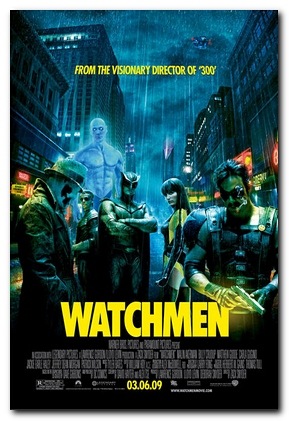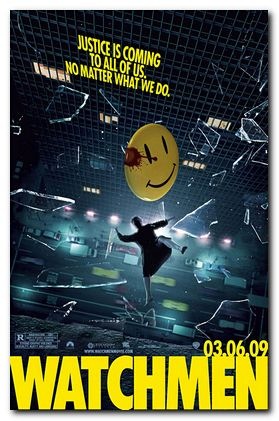 One of the earliest graphic novels I read as a young adult was Watchmen. My elder brother and I were both comic book readers and collectors in the mid 80s, and he acquired all twelve volumes of this series. The twelve books are from the first print edition and should be worth quite a bit of money now today LOL.
One of the earliest graphic novels I read as a young adult was Watchmen. My elder brother and I were both comic book readers and collectors in the mid 80s, and he acquired all twelve volumes of this series. The twelve books are from the first print edition and should be worth quite a bit of money now today LOL.
I remembered I was pretty lost when I first read Watchmen in 1986. I was 15 years old, and a lot of the story was just too convoluted for me. I did get the gist of it though: it started off as a murder investigation, and as details unraveled, the themes of superheroes in retirement, the cold war, and doomsday emerged.
It was only upon a later reading in the early 90s when I finally realized why Watchmen is one of the few if not only comic book to have ever won a Hugo award. The story was magnificent and scope expansive, characters fully realized. In its time, Watchmen, alongside The Dark Knight Returns, proved that comic books could constitute serious literature.
As critically acclaimed as the graphic novel was though, Watchmen was considered unfilmable for many years. The story jumps back and forth through its numerous flashback scenes, and a lot of its back story is told not in the art panels but long textual articles that accompanied each of the original twelve volumes.
Warner Brothers’ announcement that they would be attempting to bring Watchmen to the big screen with director Zack Snyder at the helm was met with a lot of jubilation, scorn and skepticism. And now that even that the movie’s finally out, reviews are mixed.
 We caught the movie ourselves at AMK Hub yesterday. If nothing else, Snyder’s love and reverence for the original graphic novel shows. There are so many moments in the film which are, visually, exact duplications from the source. The sets, the background objects, the signage, even the wall graffiti.
We caught the movie ourselves at AMK Hub yesterday. If nothing else, Snyder’s love and reverence for the original graphic novel shows. There are so many moments in the film which are, visually, exact duplications from the source. The sets, the background objects, the signage, even the wall graffiti.
The only other semi-recent film production that has such a slavish adherence to its literal source was Lord of the Rings (no I don’t consider the source of Snyder’s earlier movie also based off a comic book serious literature LOL). But Tolkein’s material was largely in text, so director Peter Jackson could work off his imagination and it would had been less easy for critics to complain that this character or that object is nothing like what they’d visualize it to be.
The movie isn’t an exact duplication of the source though of course. Lots of stuff had to be removed to meet a practical film length, including the comic-within-a-comic story and several other subplots. But what remained makes for a very tight story with little inane moments or extraneous dialog.
As in the graphic novel, Watchmen doesn’t include many of the traditional action set pieces. Filmgoers looking for big scenes of destruction and mayhem as super-powered beings battle it out would be severely disappointed. The few actions scenes that are in the film though are visual treats. Brutal yet without using those quick hand-held cam cinematography popular in many modern action day movies.
Acting was a bit of a mixed bag. With the exception of Malin Åkerman who plays Silk Spectre II, the cast was great, and chosen in part how closely they look compared to the original graphic novel representations. Though I’m sad at his passing, I never thought Heath Leger deserved an academy award. But if he’s won an acting award, then Jackie Earle Haley who plays Rorschach would certainly deserve one too for his role as the masked vigilante who refuses to make deals on his ideals of justice. Haley is mesmerizing and dominates every scene he’s in.
So, it was all quite a treat. Watching in motion picture form one of the greatest works of fiction I’ve read, ever. Ling thought it was about Ok, though she was a little worried if our baby had just turned deaf from the film, what with the very loud sound reproduction in the theatre.:)





In practical terms, the reason Watchmen is the only work of graphic fiction to have won a Hugo Award is that in 1988, the Worldcon committee set up a special one-time category called “Other Forms” in which it could compete. Watchmen did not win Best Novel or one of the ongoing regular categories, but a special one-time-only category.
After this August, Watchmen will no longer be the only graphic story to have won a Hugo Award, because this year’s Worldcon has added a one-time category of Best Graphic Story, and the World Science Fiction Society is on the verge of adding Best Graphic Story as a permanent category.